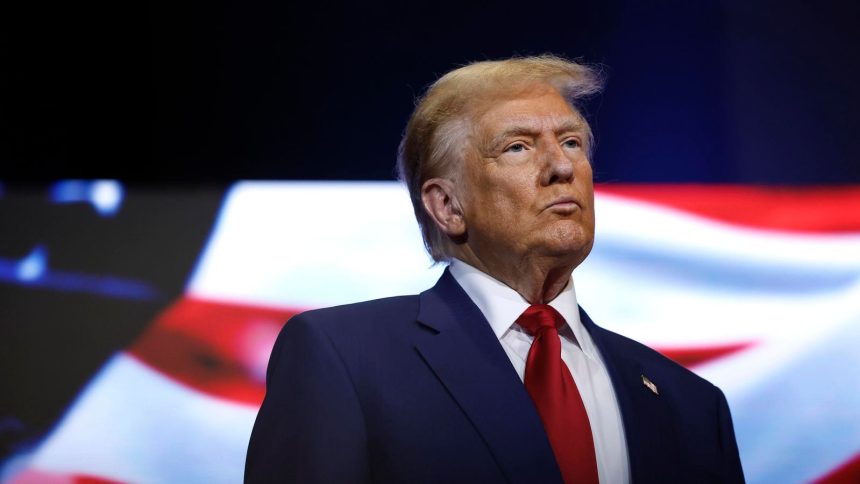Former President Donald Trump has reiterated his stance against U.S. involvement in the Syrian conflict, advocating for a complete withdrawal of American troops from the country. In a recent statement on Truth Social, Trump characterized Syria as a “mess” and asserted that the U.S. has no strategic interest in the ongoing conflict. He argued that the situation should be allowed to “play out” without American intervention, emphasizing that it is “not our fight.” This statement comes as Syrian rebels are making significant advances against President Bashar al-Assad’s regime, raising concerns about the potential for further destabilization in the region.
Trump’s comments reflect his long-standing skepticism about U.S. involvement in overseas conflicts, particularly in the Middle East. He has repeatedly criticized previous administrations for what he perceives as costly and ineffective interventions, arguing that they drain American resources and achieve little in terms of promoting U.S. interests. He specifically targeted the Obama administration’s handling of the Syrian crisis, accusing them of weakness and indecisiveness, particularly regarding the “red line” policy on chemical weapons use. Trump believes that the U.S. should prioritize its own domestic issues and avoid entanglement in complex foreign conflicts.
The former President also addressed Russia’s role in the Syrian conflict. He suggested that Russia’s withdrawal from Syria, potentially driven by its involvement in the Ukraine war, might be beneficial for the country. He portrayed Russia’s intervention as primarily aimed at making the Obama administration “look really stupid,” rather than serving any genuine strategic purpose for Russia. This assertion aligns with Trump’s broader narrative of criticizing previous administrations’ foreign policy decisions, often framing them as detrimental to American interests and prestige.
Despite Trump’s calls for withdrawal, approximately 900 U.S. troops remain deployed in Syria, primarily in the eastern and northeastern regions. The Pentagon has stated that these troops are tasked with preventing the resurgence of ISIS, a mission that underscores the ongoing security challenges in the region. The presence of U.S. forces also raises questions about the potential consequences of a complete withdrawal, including the possibility of a power vacuum that could be exploited by extremist groups. This complex situation highlights the difficult balance between maintaining regional stability and avoiding prolonged military engagements.
The Syrian conflict, which began in 2011 with protests against President Assad’s rule, has evolved into a complex and protracted civil war involving various actors, including government forces, rebel groups, and international powers. Russia’s intervention in 2015 bolstered Assad’s regime, while the U.S. has supported certain rebel groups. The conflict has also witnessed the rise and fall of the Islamic State, adding another layer of complexity to the situation. Despite previous attempts to negotiate a political solution, the conflict remains unresolved, with ongoing tensions and sporadic violence.
Trump’s call for U.S. disengagement from Syria contrasts with the positions of many foreign policy experts and some members of both political parties who advocate for continued U.S. involvement, albeit in a potentially modified form. These voices argue that a complete withdrawal could destabilize the region further, potentially leading to a resurgence of ISIS and exacerbating the humanitarian crisis. They also emphasize the importance of maintaining U.S. influence in the region to counter the influence of Russia and Iran. The debate over the future of U.S. involvement in Syria reflects the broader challenges and complexities of U.S. foreign policy in the Middle East.



